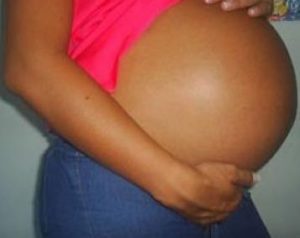Ghana records 110,000 teenage pregnancies in 2020
 According to data from the Ghana Health Service Ghana has recorded nearly 110,000 (109,888) teenage pregnancies in 2020 alone, and Queenmothers have been urged to intensify girl-child education on the prevention of teenage pregnancy in their communities to bring the increasing cases under control.
According to data from the Ghana Health Service Ghana has recorded nearly 110,000 (109,888) teenage pregnancies in 2020 alone, and Queenmothers have been urged to intensify girl-child education on the prevention of teenage pregnancy in their communities to bring the increasing cases under control.
Dr Doris Aglobitse, National Programme Analyst in charge of Communication, Partnership and Resource Mobilisation at the United Nations Population Fund (UNFPA), said current statistics on teenage pregnancy in the country was alarming and could have dire consequences for the country in the future if not addressed.
Speaking at a workshop for Queenmothers on the prevention of teenage pregnancy at Akosombo in the Eastern Region on Sunday, she called on stakeholders to intensify education and devise new strategies to tackle the menace.
Data from the Ghana Health Service indicate that the country recorded nearly 110,000 (109,888) teenage pregnancies in 2020 alone.
Out of this, 107,023 were pregnancies recorded among girls between 15 and 19 years and 2,865 girls aged between 10 and 14.
Dr Aglobitse said, “We have to intensify our efforts; we have to look for innovative ways of doing this business because we can’t do business as usual. If we don’t look for innovative strategies to address teenage pregnancy, we will not have a Ghana in the future.”
The workshop, organised by the UNFPA and Obaapa Development Foundation, with funding from Global Affairs Canada, brought together Queenmothers from traditional areas across the country’s sixteen regions.
It sought to empower the queenmothers to create a conducive environment for adolescent girls to develop, enhance their knowledge on gender-based violence, gender-sensitive adolescent sexual reproductive health rights and family planning.
It was held on the theme: “Recognising Traditional Leaders, especially Queen Mothers, as strong influencers and Critical Partners in CUBE CONVOS Facilitation.”
In Ghana, adolescent girls account for 21.7 per cent of the female population and about half of the 5.5 million adolescent population.
Dr Aglobitse noted that the transition period of the girl-child from adolescent to womanhood remained the most difficult period because they were more susceptible to influences.
Coupled with gender inequality and poverty, those transitions often exposed girls to a higher chance of school dropouts; child marriage; gender-based violence, abuse and sexually transmitted infections; adolescent pregnancy, among others.
“It is a time of key transitions from girlhood to womanhood; from primary to secondary education; from education to work and family life,” she observed.
Dr Aglobitse called for more support and continuous education for the girl-child to enable them to transition smoothly into womanhood.
The workshop forms part of a UN Joint Programme for Empowering Adolescent Girls called the: “Cube Convos.”
The Cube Convos is an innovative strategy adopted by UNFPA to reach adolescent girls in communities, schools and via virtual platforms with empowering messages and accurate sexual and reproductive health information, including menstrual health.
Nana Afrakoma II, Paramount Queenmother of Akwamu Traditional Area, who was the Special Guest at the workshop, advised mothers to take a keen interest in their wards, especially adolescent girls, to protect them from predatory men.
She also entreated queenmothers to work hard within their various jurisdictions to arrest the teenage pregnancy situation.
Madam Obaapa Adwoa Ankyaa, Executive Director, Obaapa Development Foundation, charged the queenmothers to apply the knowledge acquired from the workshop to bring teenage pregnancies within their traditional areas under control.
Source: GNA
